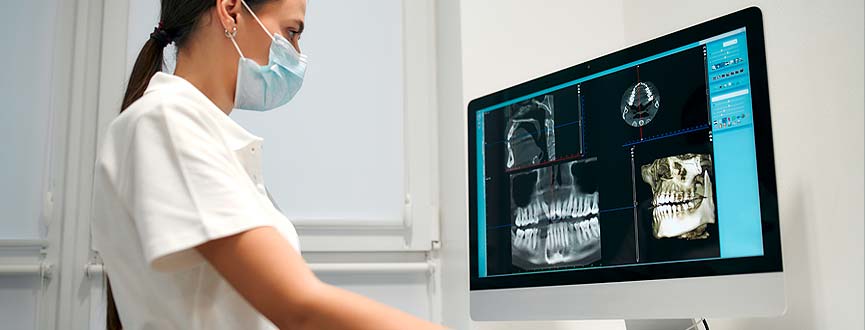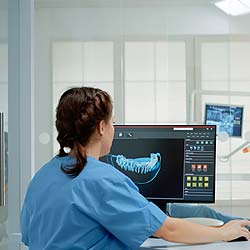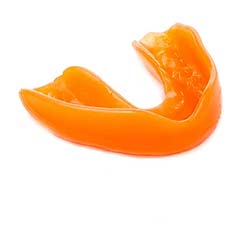We Accept Most Insurance Plans
We know that it can be stressful to navigate the insurance coverage process, but we strive to make it as smooth as possible.

The Tempero Mandibular Joint also known as the TMJ are the 2 joints that connect the lower jaw to the skull. The lower jaw’s good function is ensured by the TMJ. TMJ features an articular disc between the two bony surfaces, similar to the spinal vertebra. Ligaments and surrounding muscles keep this disc in its normal position. The TMJ is in close proximity to a branch of the trigeminal nerve. Chewing and jaw movement can be uncomfortable and difficult as a result of injury or wear and strain to this joint.
TMJ Syndrome is characterized by recurrent headaches. TMJ problems are frequently caused by whiplash injuries. An accurate health history, a physical examination of the head and neck, a radiographic examination, and an oral examination are all part of the TMJ assessment.
The causal issues are addressed in treatment. We create intra-oral appliances that support the jaw during the day and at night. Low-intensity sound shock-wave therapy in combination with homeopathy and counseling is provided.
 When you book an appointment with us for a TMJ assessment, we will send you a comprehensive questionnaire by email for you to fill out prior to your appointment.
When you book an appointment with us for a TMJ assessment, we will send you a comprehensive questionnaire by email for you to fill out prior to your appointment.
The diagnostic procedure begins with documenting your medical history which will include all past medical and dental problems and the associated treatments. A history of your trauma will also be attained, especially those relating to your head or neck. Questions will also be asked about you symptoms, especially any problems with pain or your jaw. This will include details about the nature and duration of these symptoms.
For a TMJ problem a physical examination will likely include:
Based on the findings, further testing might be required; which might include imaging or other tests.
 The first step to receiving proper TMJ treatment Toronto patients need for a TMJ disorder at our clinic is to receive a proper assessment.
The first step to receiving proper TMJ treatment Toronto patients need for a TMJ disorder at our clinic is to receive a proper assessment.
Treatment will depend on the diagnosis of dysfunction and site of injury(ies) that is causing the ongoing inflammation and upsetting the proper functioning of the central nervous system (brain). In a nut shell, we see chronic TMD as a multi-factorial inflammatory (injury) and neurological (control) disorder. Our comprehensive examination allows us to make, as accurate as possible, a diagnosis of TMD. We then decompress the TMJ with various designs of oral appliances to address the TMJ orthopedic pathology and remove peripheral inflammatory inputs from the body to the central nervous system (the brain). The goal of the treatment is to try to reduce central nervous system sensitization.
We use:
 For the clients who enjoy participating in sports, there is always a risk to facial injuries. We provide custom fit mouth guards that are moulded to provide a comfortable fit while you are participating in your activity. A custom mouth guard can provide protection over tooth damage, improved speech/clear communication, and most importantly possible concussion occurrences. Our Pro-form line mouth guards provide advantage over boil-type mouth guards with superior fit, comfort, and will retain shape over time. They come in variety of colours.
For the clients who enjoy participating in sports, there is always a risk to facial injuries. We provide custom fit mouth guards that are moulded to provide a comfortable fit while you are participating in your activity. A custom mouth guard can provide protection over tooth damage, improved speech/clear communication, and most importantly possible concussion occurrences. Our Pro-form line mouth guards provide advantage over boil-type mouth guards with superior fit, comfort, and will retain shape over time. They come in variety of colours.
We know that it can be stressful to navigate the insurance coverage process, but we strive to make it as smooth as possible.


